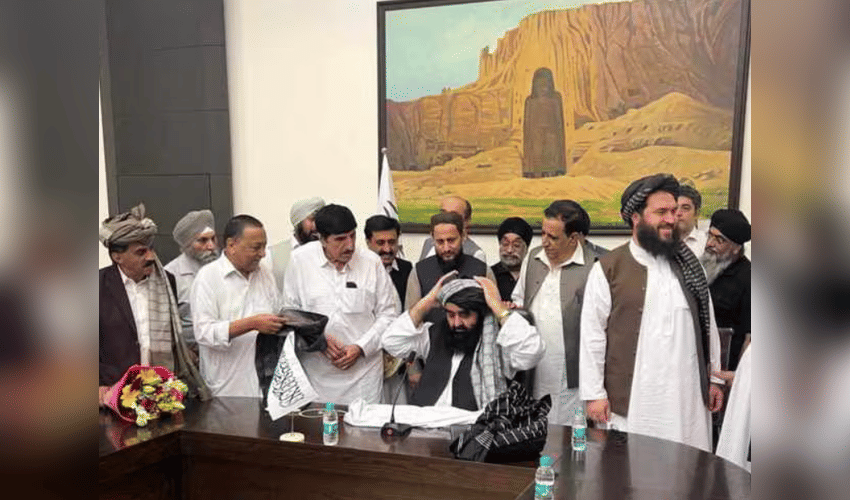Asia In News
Afghan Sikhs and Hindus Meet Taliban FM Muttaqi, Seek Safety and Restoration of Their Shrines

Afghan Sikhs and Hindus recently met with Taliban Foreign Minister Amir Khan Muttaqi in New Delhi to discuss critical concerns about their communities' future in Afghanistan, highlighting a complex blend of hope, caution, and resignation. The delegation, which included prominent members of Afghan Sikh and Hindu communities now living largely in India and other countries, expressed their desire to ensure the safety and restoration of their religious sites—gurdwaras and temples—rather than a full return to Afghanistan.
The meeting underscored a painful reality: while the Taliban welcome the return of these minorities to revive businesses and communal life, many Afghan Sikhs and Hindus feel there is "no point" in going back to a homeland where they face uncertainty and insecurity. The delegation shared that fewer than 50 Sikhs and Hindus remain in Afghanistan, primarily caretakers of these religious shrines. Key places of worship like Karte Parwan and Guru Har Rai Sahib gurdwaras in Kabul, Gurdwara Nanak Darbar in Jalalabad, and Asamai Mandir in Kabul remain among the few functional spiritual centers, with many others closed due to the lack of community presence.
The diaspora members’ main requests centered on ensuring the protection and maintenance of these sacred sites, reclaiming properties seized or encroached upon over decades, and easing travel restrictions for Afghan Sikh and Hindu nationals—many of whom now hold Indian citizenship but wish to visit Afghanistan safely. They also urged the Taliban government to reinstate inclusive governance practices, such as appointing representatives from Hindu and Sikh minorities to high-ranking government positions, reflecting a desire for institutional recognition and security.
Despite Taliban assurances about safeguarding minority rights and restoring lost properties, the return of significant community members remains unlikely. Many Afghan Sikhs and Hindus have rebuilt their lives abroad, especially in India, where citizenship pathways have facilitated their resettlement. The focus now is on protecting heritage and ensuring that these communities can maintain a connection to their roots through visits and religious practices, even if permanent return seems impossible.
This dialogue in New Delhi signals a nuanced chapter in Afghanistan’s evolving social fabric, where minority voices seek dignity and security amid ongoing challenges. It also reflects India's role as a refuge and mediator for displaced Afghan minorities, embodying broader geopolitical shifts and the persistent human hope to preserve cultural and religious identity through difficult times.
Afghan Sikhs and Hindus are asking not for a full repatriation but for peace of mind—that their shrines and traditions remain safe even as they continue their lives beyond Afghanistan’s borders. This plea for security and cultural preservation resonates deeply amidst the complex realities faced by minorities in post-Taliban Afghanistan, offering a vital perspective on resilience and the quest for coexistence.



